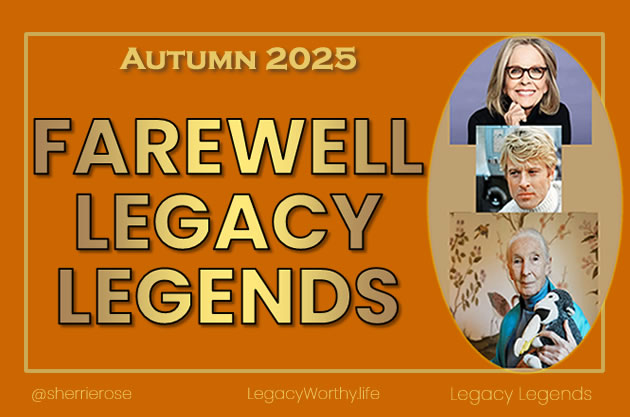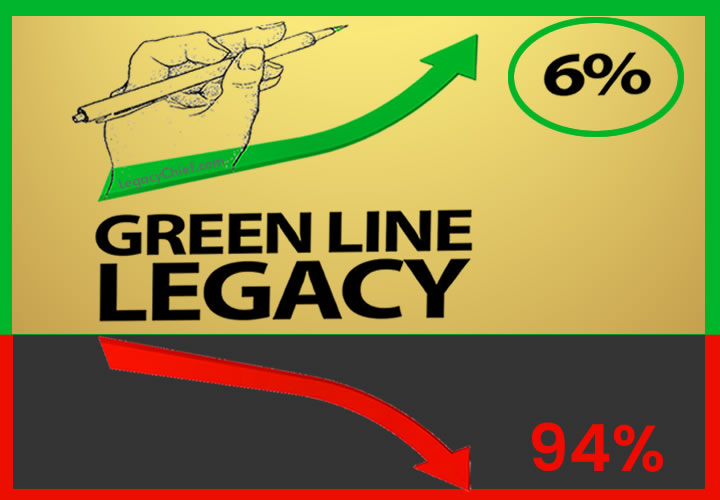Remembering Three Icons: Diane Keaton, Robert Redford, and Jane Goodall

Remembering Three Legacy Worthy Icons:
Diane Keaton, Robert Redford, and Jane Goodall
The autumn of 2025 has brought profound loss to the worlds of film, conservation, and science. Within weeks of each other, three legendary figures who shaped their respective fields have passed away, leaving behind extraordinary legacies that will continue to inspire generations to come.
Diane Keaton (1946-2025): The Iconic Individualist
Oscar-winning actress Diane Keaton died on October 11, 2025, at the age of 79 from bacterial pneumonia. According to CNN, she was transported from her home to Saint John’s Health Center in Santa Monica, California, where she passed away.
Born Diane Hall in Los Angeles, Keaton’s career spanned more than six decades, during which she became one of cinema’s most beloved and distinctive actresses. Her collaboration with Woody Allen produced some of the most memorable films of the 1970s, culminating in her Academy Award-winning performance in “Annie Hall” (1977)—a role that Allen wrote specifically for her, using her nickname and birth surname.
“Diane’s the most self-deprecating person alive,” director Nancy Meyers once said of her friend of 40 years, who directed Keaton in “Something’s Gotta Give.” Meyers wrote in an Instagram tribute that Keaton was the kind of actress and performer who “made everything better.”
Beyond her acting prowess, Keaton became a fashion icon, introducing audiences to her gender-nonconforming style of men’s slacks, vests, and hats—a look she maintained throughout her life. As Variety reported, her other notable roles included Kay Adams in “The Godfather” films, and starring turns in “Father of the Bride,” “Baby Boom,” and “The First Wives Club.”
According to statements from her family, Keaton was passionate about animal welfare and support for the unhoused community, requesting that memorial donations be made to local food banks or animal shelters.
Robert Redford (1936-2025): The Golden Boy Who Changed Cinema
Hollywood legend Robert Redford died peacefully in his sleep on September 16, 2025, at his home in Sundance, Utah, at the age of 89. His representative told CNN that he passed away “at the place he loved, surrounded by those he loved.”
With his tousled blond hair, granite jaw, and magnetic screen presence, Redford became one of the defining actors of the American New Wave. His partnership with Paul Newman in “Butch Cassidy and the Sundance Kid” (1969) and “The Sting” (1973) created some of cinema’s most enduring moments. But it was perhaps his role in “All the President’s Men” (1976), playing Washington Post reporter Bob Woodward, that showcased his commitment to meaningful storytelling.
Redford’s impact extended far beyond acting. He won the Academy Award for Best Director for “Ordinary People” (1980) and went on to direct celebrated films including “A River Runs Through It” (1992) and “Quiz Show” (1994). According to ABC News, he was also a dedicated environmentalist who moved to Utah in 1961 and led efforts to preserve the natural landscape of the American West.
Perhaps Redford’s greatest legacy was the creation of the Sundance Film Festival and Institute, which became the premier platform for independent filmmakers. “The industry was pretty well controlled by the mainstream, which I was a part of,” Redford once said. “But I saw other stories out there that weren’t having a chance to be told and I thought, ‘Well, maybe I can commit my energies to giving those people a chance.’”
Frequent collaborator Jane Fonda paid tribute to Redford, writing: “He meant a lot to me and was a beautiful person in every way.” According to Wikipedia, he received numerous honors throughout his career, including the Presidential Medal of Freedom in 2016 and the Kennedy Center Honors in 2005.
Jane Goodall (1934-2025): The Woman Who Spoke for Chimpanzees
Dr. Jane Goodall, the pioneering primatologist who revolutionized our understanding of chimpanzees and became one of the world’s most influential conservationists, died of natural causes on October 1, 2025, at the age of 91. ABC News reported that she passed away in Los Angeles while on a speaking tour in the United States.
Goodall was only 26 years old when she first traveled to Tanzania in 1960 to begin her groundbreaking research on wild chimpanzees in what would become Gombe Stream National Park. Her revolutionary discovery that chimpanzees could make and use tools challenged the scientific establishment’s understanding of what separated humans from other animals.
As documented by numerous sources, Goodall’s approach was unconventional—she named the chimps she studied rather than assigning them numbers, and she observed their individual personalities, emotions, and social structures with unprecedented detail. She discovered that chimpanzees could be loving and altruistic, but also violent and capable of warfare—behaviors strikingly similar to humans.
“How like us” the chimpanzees are, Goodall told ABC News in 2020. “Their behavior, with their gestures, kissing, embracing, holding hands and patting on the back… The fact that they can actually be violent and brutal and have a kind of war, but also loving and altruistic.”
In 1977, Goodall founded the Jane Goodall Institute, which now operates in 25 cities worldwide, working to improve the treatment and understanding of primates. She also established Roots & Shoots in 1991, a global humanitarian and environmental program for young people that continues to inspire youth activism around the world.
According to Newsweek, Goodall received numerous prestigious awards throughout her life, including being named a Dame Commander of the Order of the British Empire in 2003, a United Nations Messenger of Peace in 2002, and receiving the Presidential Medal of Freedom in January 2025, just months before her death.
Even in her final years, Goodall maintained a rigorous speaking schedule, traveling the world to advocate for conservation, animal welfare, and climate action. ABC7 Los Angeles reported that more than 1,000 students and educators had gathered in Pasadena on the day of her death to hear her speak and launch a tree-planting initiative—a testament to her enduring influence on young people.
A Legacy of Excellence
These three extraordinary individuals shared more than their celebrity—they used their platforms to advocate for causes larger than themselves. Keaton championed animal welfare and support for the homeless. Redford devoted decades to environmental conservation and giving voice to independent filmmakers. Goodall spent her life fighting for the protection of primates and the natural world, while inspiring countless young people to become activists and scientists.
Their passing marks the end of an era, but their work continues. The films of Keaton and Redford will entertain and inspire for generations. The Sundance Film Festival remains a beacon for independent cinema. The Jane Goodall Institute and Roots & Shoots programs continue to spread her message of hope and conservation to millions around the world.
As Goodall wrote in her book “The Book of Hope”: “You need hope to get you going, but then by taking action, you generate more hope.” It’s a fitting epitaph not just for her, but for all three of these remarkable individuals who spent their lives taking action and inspiring others to do the same.


